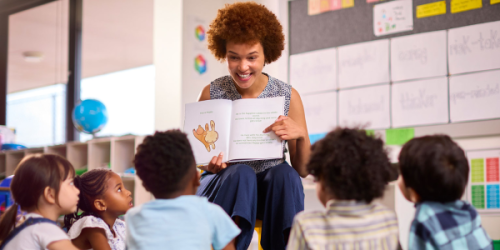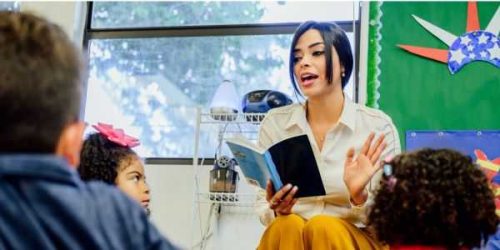Good readers understand what they read when they have the skills to sound out words (known as “decoding”) and also have content knowledge to draw meaning from the text. Thus, the field has historically focused on two approaches to improve reading comprehension. The first teaches students procedures, such as finding the main idea. The second approach seeks to build the background knowledge of students, including subjects such as history, geography, science, music, and visual arts, reasoning that the more students knew about a topic, the more easily they could comprehend.904
However, attention to these two approaches has not been equal. Over the past 30 years, an inordinate amount of reading instruction has focused on procedures. In contrast, schools devoted much less time to teaching subjects that increase background knowledge—like science and social studies.905 Concurrently, research has increased on the importance of background knowledge for students’ reading comprehension. For example, one meta-analysis found readers compensate for weak reading skills when they have more background knowledge.906
One solution may lie in adopting a knowledge-rich curriculum. These curricula build a student’s content knowledge in literature, arts, science, and social studies by exploring topics deeply and cumulatively in each grade level.907
In a recent working paper by Grissmer et. al, the researchers completed an experimental study evaluating ELA achievement for students in charter schools that taught the Core Knowledge curriculum, which emphasizes general knowledge across all subject areas.
The study could not isolate the effects of the Core Knowledge (CK) Curricula as opposed to other school effects, though all of the schools in the treatment group used the CK curriculum for a minimum for four years, while those schools in the comparison group did not use knowledge-rich curricula. Students were assigned to schools via a lottery. The results indicate significant positive effects in ELA for student achievement across 3rd through 6th grades for students receiving the knowledge-rich curricula. Furthermore, when researchers looked at the demographics of students in the schools, they found positive results in schools serving low-income students and implementing a CK curriculum: In both ELA and math, when CK was in use, they found statistically significant moderate to large effects. Using CK produced results large enough to eliminate the achievement gap between low- and high- income students in both reading and math.
These findings add to a mountain of evidence demonstrating the power of background knowledge.
So what does the field need to do?
- Districts and schools must ensure students are taught science and social studies for their importance as a discipline and for the contributions these subjects make to students’ background knowledge and reading comprehension.
Districts should schedule sufficient time in the class schedule for all subjects – not just math and reading. - Choose a content-rich curriculum. Select curriculum emphasizing deep knowledge in science, social studies, arts, and literature – especially those earning high marks on ‘building knowledge’ by EdReports.
- Provide rigorous training to in-service teachers. Preparing teachers to execute new curriculum can help them implement curriculum skillfully.
- Ensure aspiring teachers are well-prepared in content knowledge before they enter the classroom. NCTQ released the Building Content Knowledge: Content Coverage Tool last year exploring how teacher preparation programs can enhance their course requirements in science and social studies.
Teacher prep programs can use the tool to self-assess the depth of their content coverage (and make changes accordingly). - Create well-designed assessments to measure students’ content knowledge and align with knowledge-rich curriculum. Grissmer et. al (2023) noted current standardized tests used to monitor reading are not designed to capture students’ background knowledge, and may focus solely on students’ use of procedural skills. To support students’ comprehension through building knowledge effectively, states, districts and teachers need thoughtfully-designed assessments that give information about where students have and have not developed in-depth background knowledge.908
More like this

Are we setting up English learners for reading success?
Every year, countless English learning students pass through our education system without getting the help they need. And for each one, a teacher is left feeling frustrated, or confused, and may not even realize why.

Bridging the gap: Recruiting teachers trained in the science of reading
What can districts do to secure teachers prepared to teach scientifically based reading instruction?

Ten maxims: What we’ve learned so far about how children learn to read by Dr. Reid Lyon
Together we can address the literacy crisis head-on, reversing historical patterns of inequity and changing the lives of millions of our children.

